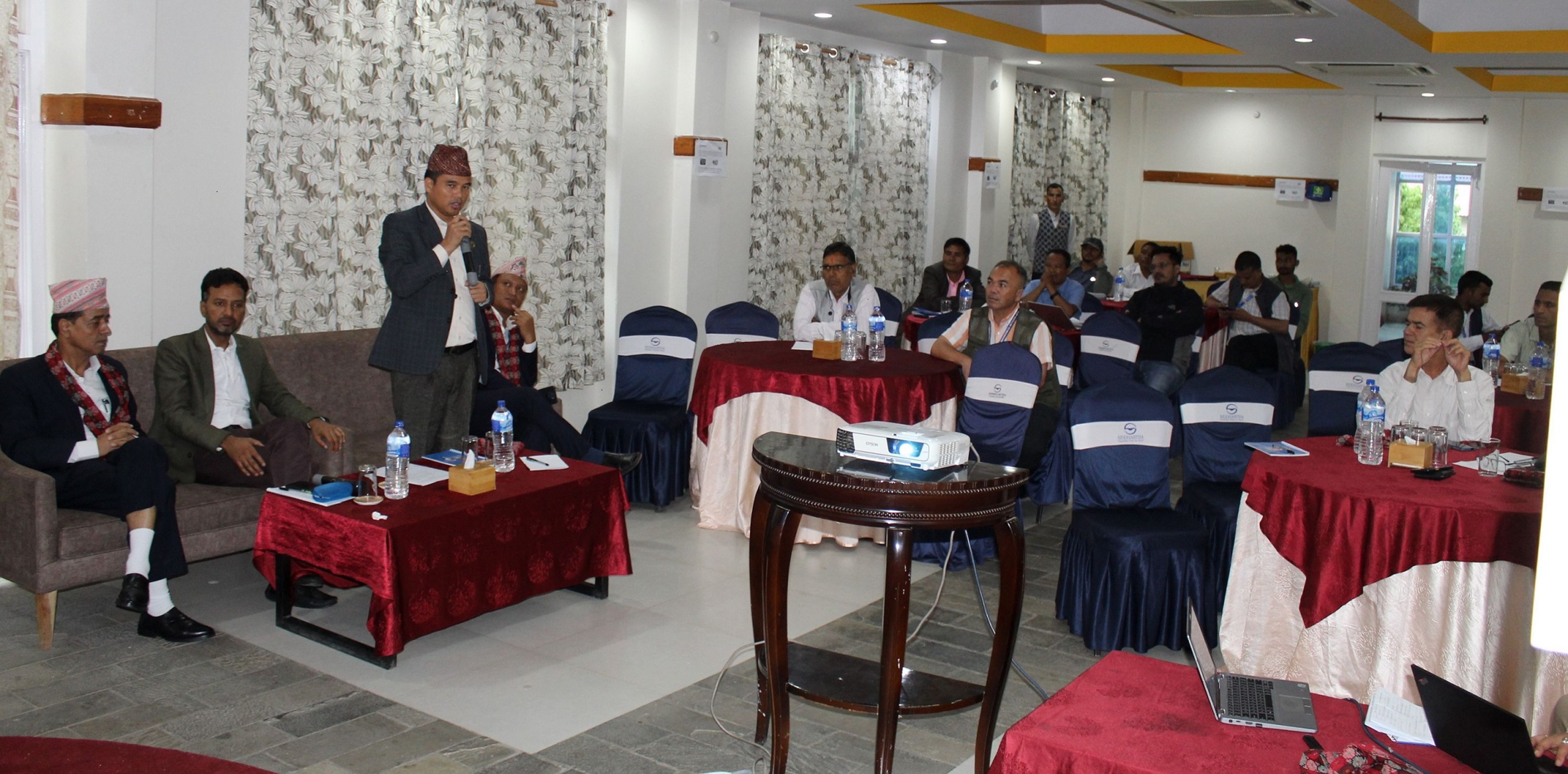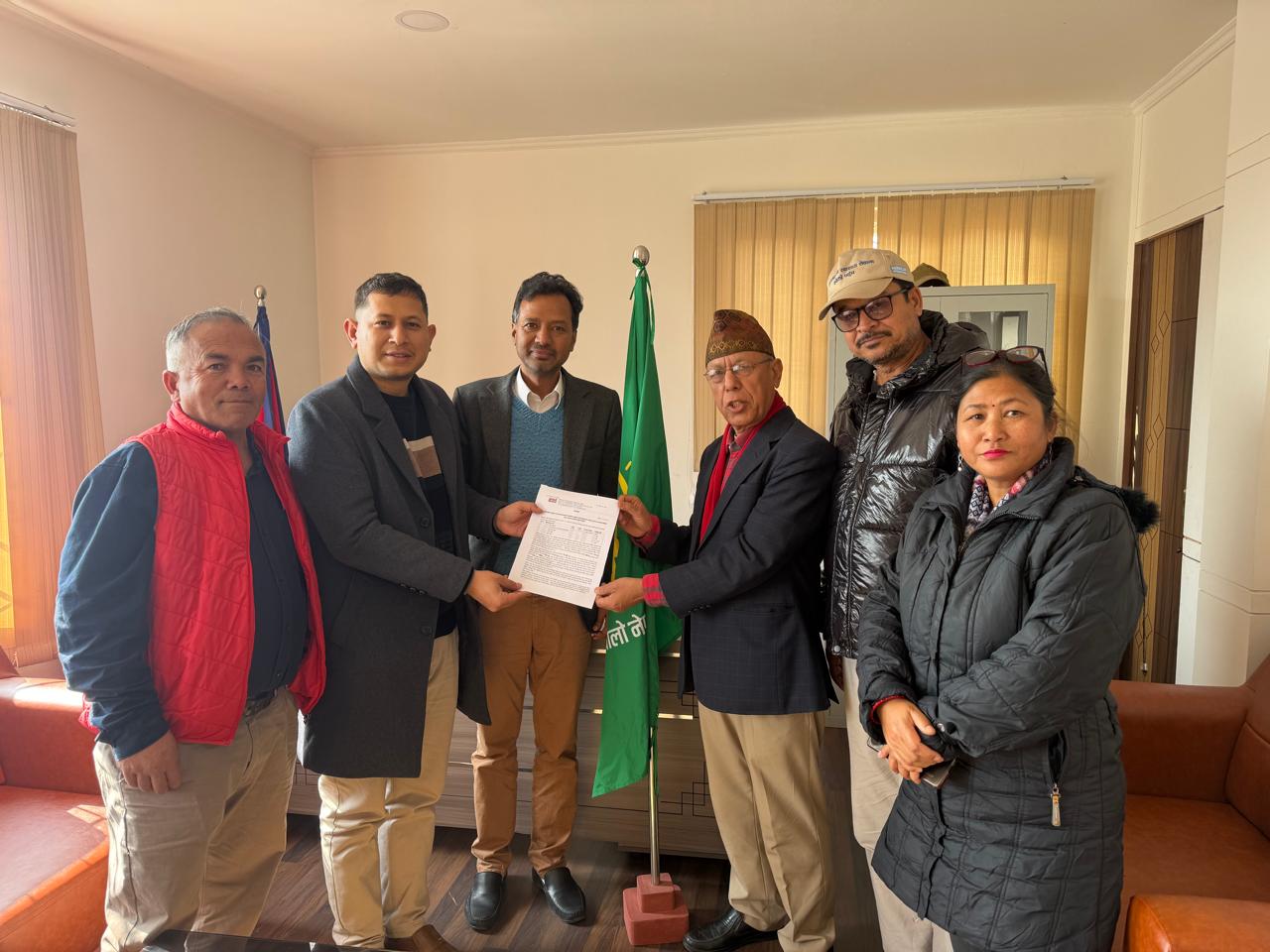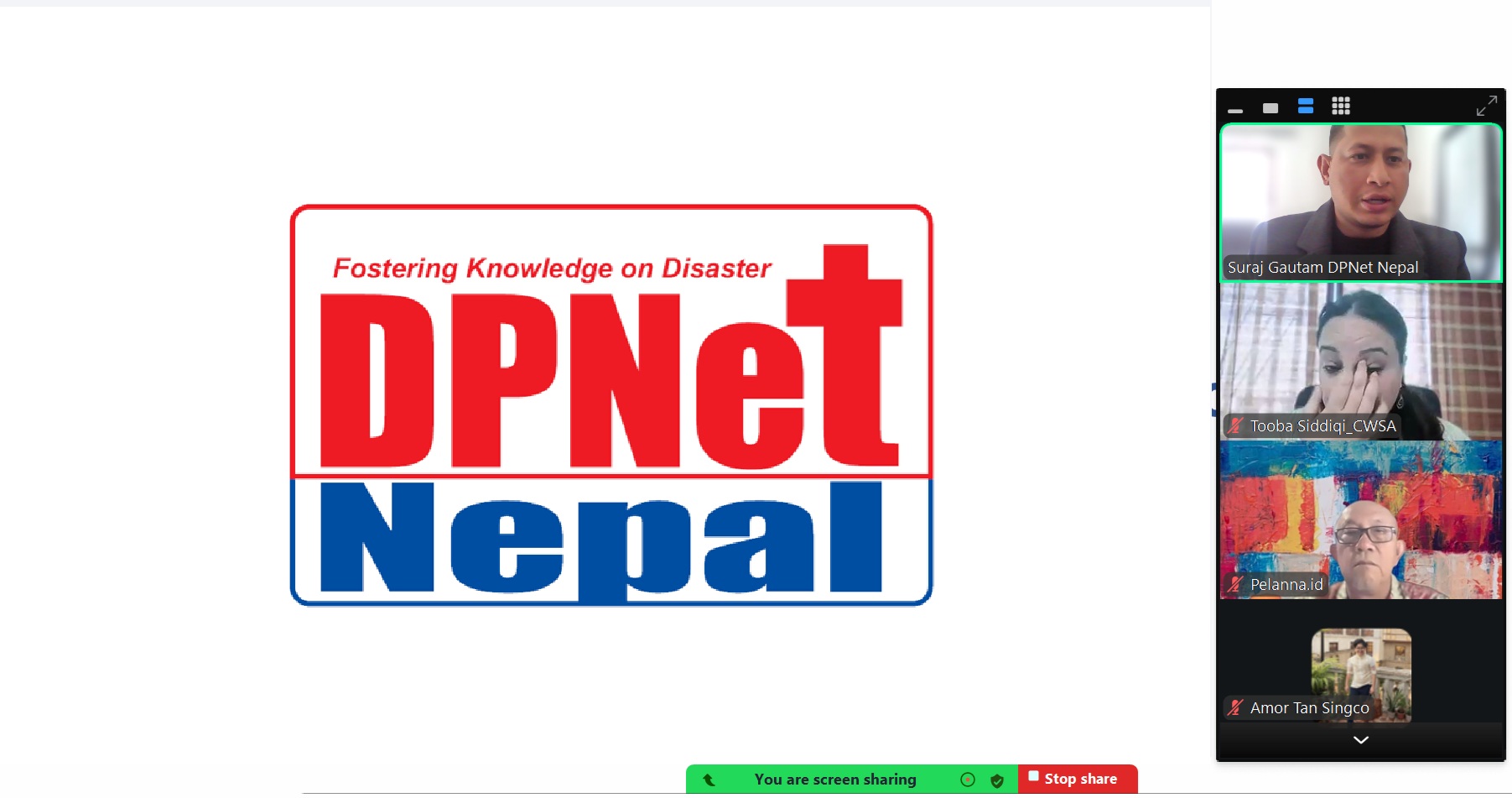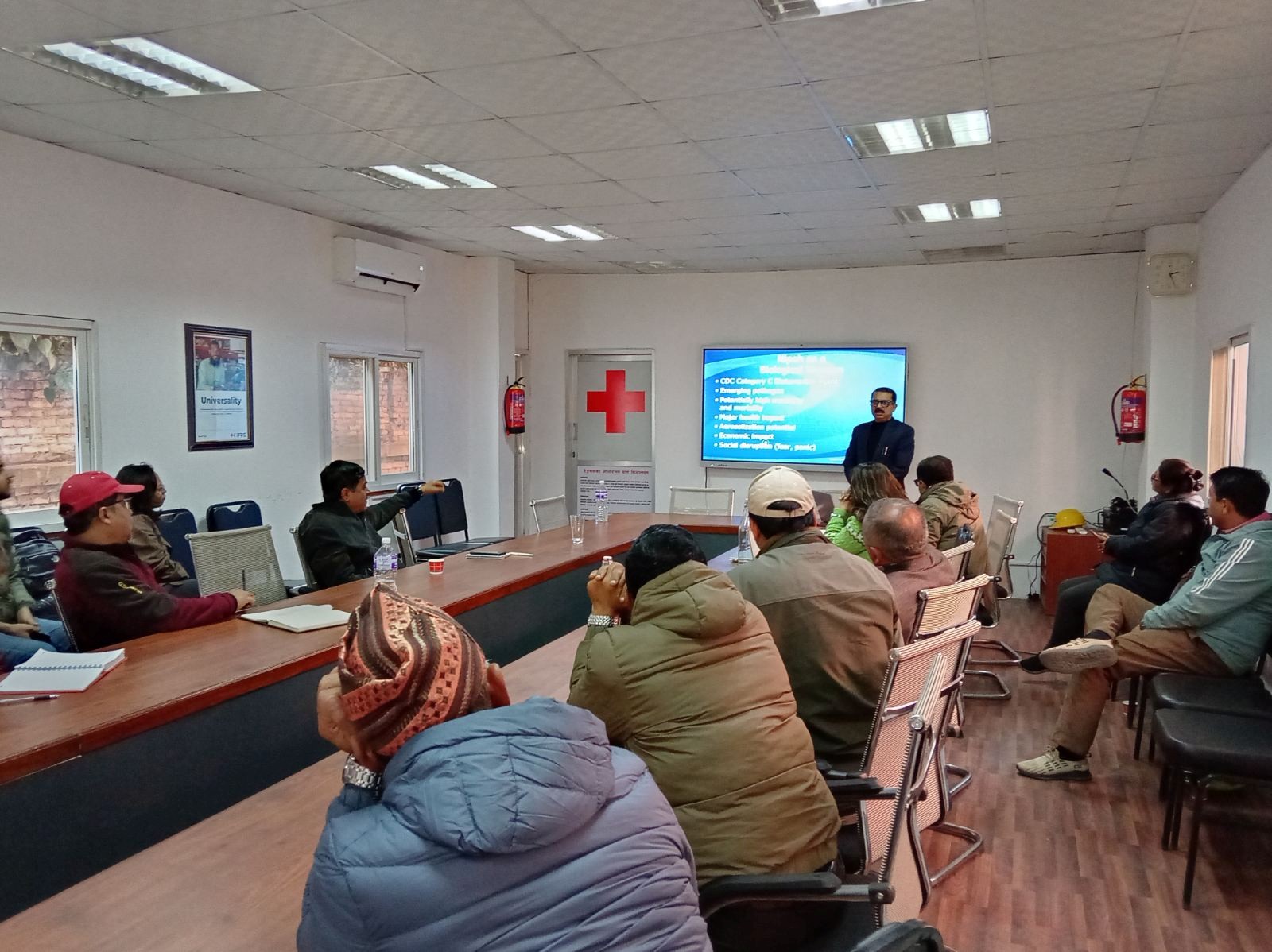Provincial DRR Policy Implementation and Learning Program at Karnali Province

Karnali Province, August 13, 2023 - Disaster Preparedness Network (DPNet-Nepal), with financial and technical support from USAID's Tayar Nepal, organized a significant event aimed at enhancing Disaster Risk Reduction and Management (DRRM) governance, inclusion, and accountability in Karnali Province, Nepal. The gathering brought together key government officials, security forces, NGOs, and representatives from various sectors to address contextual issues, review progress in DRRM implementation, and offer recommendations for more effective disaster management.
The opening ceremony of the provincial event commenced with Mr. Sher Bahadur Karki welcoming all attendees and providing an overview of the program’s objectives and outline. Dr. Raju Thapa, Acting Chair of DPNet Nepal presided over the event, while Hon. Krishna Bahadur G.C., Minister of Internal Affairs and Law, Karnali Province served as the chief guest. Mr. Ananda Saru, Acting Chief Secretary, Office of the Chief Minister and Council of Ministers, Karnali Province, and Mr. Narayan Prasad Sapkota, CDO, District Administration Office, Surkhet, served as special guests for the program. The program was attended by government representatives, security forces, and various stakeholders working in Karnali Province.
Mr. Sher Bahadur Karki, the EMCEE of the program, extended a warm welcome to all the distinguished guests and participants. He proceeded to elaborate on the disastrous scenarios faced by the Karnali province, encompassing the inundation of Surkhet, road blockages in hilly areas, obstructions along the Karnali Highway, occurrences of high avalanches, and frequent landslides. He emphasized the fact that the program was designed to serve as a platform for learning and sharing, aiming to benefit everyone involved.
Mr. Kedar Neupane, Former Secretary of the Government of Nepal, extended warm greetings and thanked the event organizers, and proceeded to highlight geographical complexities and hazard identification issues, emphasizing the need for proper engineering to prevent future disasters. Mr. Neupane underlined the ongoing developmental steps, particularly in Jumla and Mugu, stressing hazard mapping for disaster mitigation. He discussed his experience during the Jagarkot Diarrhea outbreak, advocating adaptive measures like cash-for-work initiatives. Addressing agriculture challenges, he promoted innovative approaches due to wildlife interference and the need for farmer rehabilitation. Mr. Neupane praised Karnali's Group Accident Insurance Program and inquired about the Godam Ghar project. He urged indigenous technology adoption and centralized relief efforts, highlighting critical infrastructure management, such as the Bheri Bridge.
Dr. Raju Thapa, Program Chair shared a presentation that shed light on historical disasters, including the 2015 Gorkha Earthquake, and stressed the need for robust DRR policies and implementation. He detailed the 2015 Gorkha Earthquake’s profound impact, leaving 14 districts extremely vulnerable and causing widespread building destruction and educational disruption. Strengthening disaster risk reduction (DRR) policies at the provincial level for effective preparedness was emphasized. The presentation offered earthquake predictions based on historical data, focusing on Karnali Province's risk. Concerns were raised about policy implementation and accountability, with questions surrounding the National Disaster Risk Reduction and Management Authority's (NDRRMA) fund distribution and infrastructure planning.
Challenges stemming from Nepal's diverse terrain and inadequate preparedness strategies were discussed. Dr. Thapa also highlighted NPDRR's coordination role at various levels and concluded with thought-provoking questions. The presentation underscored the urgency of robust DRR policies and practices in Nepal, recognizing the interconnectedness of disasters and the need for comprehensive preparedness efforts.
Mr. Rajesh Shoni, USAID’s Tayar Nepal elaborated on the involvement of USAID/Tayar Nepal for comprehensive disaster risk reduction in multiple municipalities, collaborating with MoHA and MoFAGA. With an emphasis on Dullu and Birendranagar in Karnali Province, the program develops disaster preparedness plans, emergency centers, and strategic actions. Collaborations with Shikhar Insurance and eSewa provide disaster insurance for 1,200 households. Birendranagar aims to be a resilience model, while a similar provincial-level disaster risk reduction platform is planned. The program aligns local and provincial efforts, promoting strong policies for disaster readiness, response, and recovery.
Mr. Narayan Sapkota, Chief District Officer of Surkhet, thanked DPNet for its role in disaster risk reduction (DRR) and highlighted the importance of cooperation among stakeholders. With experience in local and federal roles, he emphasized shared responsibilities in DRR, focusing on effectiveness during crises. He discussed the pivotal role of the CDO in district-level disaster management, collaborating with security forces and swiftly responding to crises. The coordination between District Emergency Operation Center (DEOC) and Local Emergency Operation Center (LEOC) was underscored for effective rescue efforts. Mr. Sapkota stressed consistent interactions through District Disaster Management Committee meetings, fostering collective preparedness. Ongoing DRR activities and the community's trust in efficient emergency handling were outlined as key priorities.
Mr. Ananda Saru, Acting Chief Secretary at the Office of the Chief Minister and Council of Ministers in Karnali Province, Special Guest of the Program discussed essential elements of effective disaster risk reduction (DRR), emphasizing coordination and budget allocation in Karnali Province's initiatives. He cautioned against duplicating administrative structures across the three government levels, as this could hinder service delivery. He suggested improved coordination or reduced structures to enhance efficiency. Mr. Saru also stressed the importance of program recommendations and expressed optimism for successful implementation.
Hon. Krishna Bahadur GC, Minister, Ministry of Internal Affairs and Law, Karnali Province, Chief Guest of the Program emphasized the distinct roles of the three tiers of government, urging a shift from power-centric approaches to focused duty fulfillment. He stressed seamless coordination across governance levels, prioritizing efficient crisis management over rigid protocol. Highlighting Karnali Province's commitment to disaster mitigation, he outlined policies and initiatives for pre-disaster preparation and post-disaster recovery.
Hon. GC cautioned against development exacerbating vulnerabilities, citing a landslide incident's downstream impact. He advocated communication and collaboration between neighboring local governments for robust cross-boundary disaster response. Acknowledging strides in preparedness, he praised DPNet's contribution. Hon. GC expected support from development partners for DRR initiatives, reaffirming the province's dedication to resilience and disaster readiness.
The program also recognized the contributions of institutions like the Armed Police Force and Nepal Police in disaster response and community training. Recommendations emerged, emphasizing the need for strengthened policies, intergovernmental coordination, capacity building, indigenous knowledge integration, enhanced Early Warning Systems, community resilience, and development projects aligned with DRR.
Dr. Thapa gave a concluding remark by highlighting the collective commitment to disaster resilience, with stakeholders pledging to collaborate, share resources, and build a more disaster-prepared Karnali Province. The event encapsulated a holistic approach to disaster risk reduction, emphasizing collaboration, learning, and proactive preparation for future challenges.











